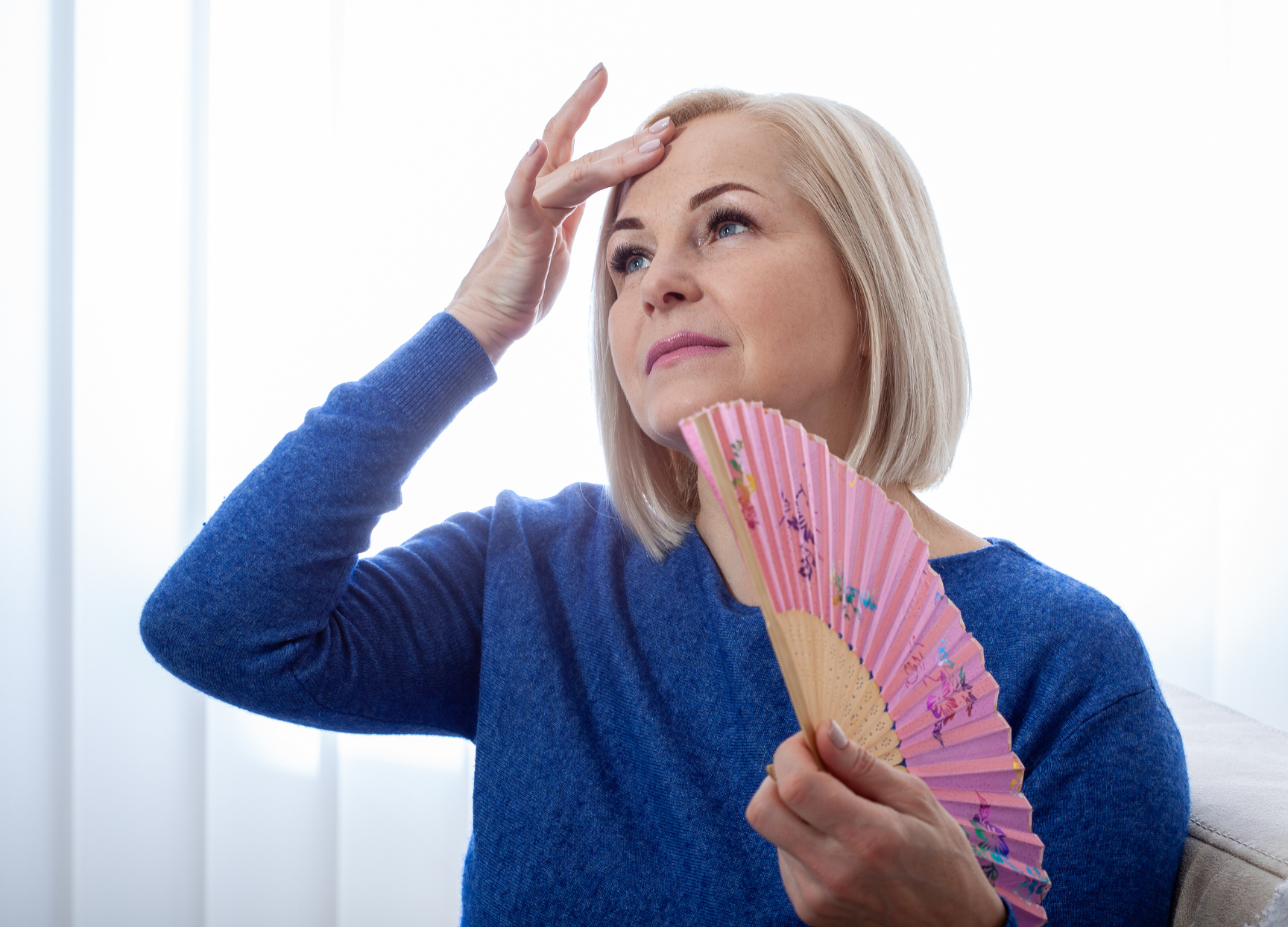
Ms Lucy Kerrison
Specialist expertise: Irritable Bowel Syndrome, Inflammatory Bowel Disease, Dietitian, Nutrition, Gastroenterology.
Gastrointestinal Dietitian, Ms Lucy Kerrison, discusses at-home remedies that can help to ease menopause symptoms.

The menopause, the natural transition when a woman's periods cease, can bring a wave of uncomfortable symptoms like hot flushes, night sweats, vaginal dryness, and mood swings. Hormone replacement therapy (HRT) is a common approach for managing these symptoms, but it might not be suitable for everyone due to potential side effects or personal preferences.
This blog explores some at-home remedies that may offer relief from menopausal symptoms. It's important to remember that these are not replacements for medical advice. Always consult your doctor before starting any new remedies or supplements, especially if you have any underlying health conditions or are taking medications.
What you eat can significantly impact your hormone levels during menopause. Here are some dietary tips:
Focus on phytoestrogens: These plant-based compounds mimic oestrogen in the body and may help alleviate symptoms. Excellent sources include flaxseeds, lentils, tofu, and chickpeas.
Maintain a healthy weight: Excess weight can worsen menopausal symptoms. Aim for a balanced diet and regular exercise to manage your weight.
Prioritise sleep: Menopause can disrupt sleep patterns. Establish a regular sleep schedule, create a relaxing bedtime routine, and ensure a cool, comfortable sleeping environment.
Some herbs have been traditionally used to manage menopausal symptoms. However, it's crucial to consult your doctor before using them, as they can interact with medications or have side effects. Here are two common examples:
Black Cohosh: This herb may help reduce hot flushes and night sweats.
Red Clover: Red clover is another herb sometimes used for menopausal symptoms, although research on its effectiveness is ongoing.
Certain supplements may offer some relief from menopausal symptoms. Again, discuss with your doctor before starting any supplements:
Vitamin D: Vitamin D deficiency is linked to worsened menopausal symptoms. Ensure adequate vitamin D levels through diet, sunlight exposure, or supplements as recommended by your doctor.
Calcium: Maintaining bone health is crucial during menopause. Calcium supplements can be helpful, especially if you don't get enough calcium from your diet.
Stress can exacerbate menopausal symptoms. Relaxation techniques like yoga, meditation, or deep breathing exercises can help manage stress and improve your overall well-being.
At-home remedies like dietary changes, herbal remedies (with caution and doctor approval), supplements, and stress management techniques may offer some relief from menopausal symptoms. Remember, consulting with your doctor is essential before starting any new remedies or supplements. They can help you create a personalised plan to manage your menopause journey effectively.
Lucy has been specialising in the dietary management of gastrointestinal conditions for 7 years, working within leading NHS teaching hospitals (the John Radcliff & Churchill hospitals), as well as leading the hydrogen breath testing service at HCA, before moving into the private sector full-time. She is a guest lecturer for dietetic students, on the topic of IBS, and is currently contributing to the dietetic manual of clinical practice, covering the topic of malabsorption.